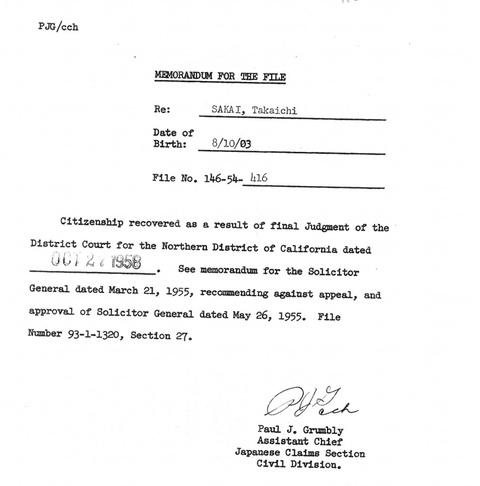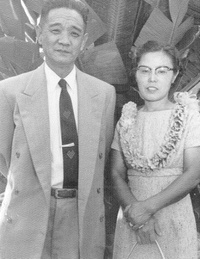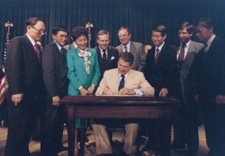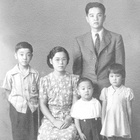Read Part 4 >>
Even though my grandparents and their children were allowed to stay in the United States, it wasn’t until 1958 did they get their citizenship back.
The World War II experience probably affected my grandparents in ways that I could never know. I have heard that my grandmother would cry when people asked her about the camps. This is probably why no one in my family discussed those years and it wasn’t until I started working at the Japanese American National Museum did I find out what really happened.
Finding the FBI file on my grandfather has helped me gain a better sense of why he made the decisions that he did. I admit that when I first found out that he had given up his citizenship willingly, I questioned his actions. I wasn’t sure if he was disloyal or angry. Or both. But my grandfather’s words make clear that it was never matter of loyalty or disloyalty to America but it was always about what he thought was best for him and his family. It is difficult to fault anyone for trying to do what they think is best for their family.
So Grandpa, even though I never got to meet you in person, I feel like for the first time I truly understand you. It was important for me to write this all out and tell everyone what you went through to make sure no one goes through what you went through again.
The Japanese American story ends well. In 1988, the United States government passed the Civil Liberties Act, which gave $20,000 and an official apology to all Japanese Americans that were incarcerated during World War II.
I have my father’s apology letter sitting on my desk. I will transcribe it because I feel they are words all Americans should read:
A monetary sum and words alone cannot restore lost years or erase painful memories; neither can they fully convey our Nation’s resolve to rectify injustice and to uphold the rights of individuals. We can never fully right the wrongs of the past. But we can take a clear stand for justice and recognize that serious injustices were done to Japanese Americans during World War II.
In enacting a law calling for restitution and offering a sincere apology, your fellow Americans have, in a very real sense, renewed their traditional commitment to the ideals of freedom, equality, and justice. You and your family have our best wishes for the future.
George Bush
Unfortunately, my grandfather never received the money (because he passed away before the act was passed) but the rest of my family did. 20 thousand dollars could never make up for what happened to them but the apology goes a long way in healing a nation, a community, and a family.
If you’re interested in finding out more about what happened to Japanese Americans during World War II, I recommend visiting the Japanese American National Museum (www.janm.org) or looking through sites such as www.discovernikkei.org and www.densho.org.
* This article was originally published on 8Asians.com on August 9, 2011.
© 2011 Koji Steven Sakai









